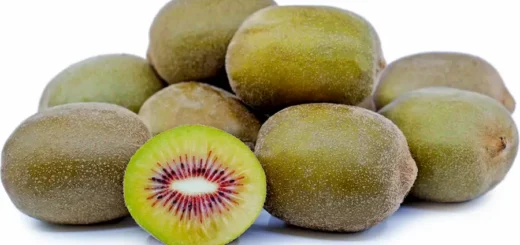Smart choices — Exporter Magazine

With a raft of new products, a new purpose-built manufacturing facility, and spectacular sales growth in local and export markets, Smartfoods is poised to enter its best business phase ever.
Breakfast cereals are a multi-million, make that multi-billion, dollar global market, and every year Smartfoods, which has the licence to produce cereals under the famous Vogel’s brand, secures a larger spoonful of that market through its domestic sales and exports to Australia and China.Exporter has proof, Smartfoods CEO Justin Hall shares their revenues for the past decade and it shows a year-on-year average growth of 36.5 percent. Going forward, with a raft of new initiatives, it looks like the next 12 months will deliver exponential growth.Smartfoods is aptly named; it’s smart food for smart thinking people, made by smart innovators. And Justin was pretty smart when he secured the Vogel’s brand for his breakfast foods in 2003, fine-tuning various formulas in his home kitchen.The driving force behind Smartfoods is, of course, Justin and wife Vicky, who are majority shareholders. When you consider the couple’s backgrounds you have to agree Smartfoods was an opportunity in waiting. Prior to starting the business Justin had worked with a number of fast growing export businesses, travelling extensively to China and other parts of Asia in the course of that business.He admits to having an entrepreneurial streak since high school, where he used to trade produce. He’s also a keen cook, having acquired many skills from friends who are chefs.Vicky has a background in food and beverage, having held senior marketing and general management roles for the likes of Coca Cola, Griffins and Goodman Fielder. She’s putting those skills to good use at Smartfoods.“So in terms of combining passions with business opportunities, food seemed a pretty good way for us to go,” says Justin, admitting that while he did his entrepreneurial thing, Vicky was always the one covering the mortgage.The connection with Vogel’s came through a meeting with Alan Stevns, who works with the famous Swiss brand, and whose grandfather had worked with Alfred Vogel and seen the benefits of applying his nutritional philosophies to diets down-under.There was little competition at that time, but the couple were focused on an opportunity. Justin, together with a food technologist, came up with five cereal products in his Remuera kitchen.They initially outsourced production to a small bakery to get Smartfoods off the ground, but growth was so strong that three years later, they were looking for a new solution and moved to their current premises in St Johns in 2008. This year they’re shifting into a 5,600 square metre Mt Wellington site that cost $2.5 million to fit out. It should accommodate growth for at least the next five years, says Justin. “Food manufacturing is an expensive business and capital intensive!”Needless to say the brand has been very popular and successful. From a zero start ten years ago, Smartfood’s cereals are now well represented on supermarket shelves on both sides of the Tasman.Justin says a sea-change moment was recognising that they’ve the ability and appetite for growth, and becoming more targeted with their resources.“The challenge is filtering out the good opportunities and just focusing on the great ones. With our entrepreneurial business culture, the temptation was always to go after everything,” he says. “So we’ve written a very detailed ‘bottom-up’ strategic plan – product by product, market by market – for the next five years.”
Smartfoods is adopting a disciplined approach going forward, he explains – making sure they have the right people, capital structure and infrastructure in place to meet capacity demands and market goals. Although that’s not to say they won’t be flexible enough to take up other opportunities as they come along – as Justin puts it, sometimes you need to ‘zig’ while others ‘zag’.
Selling cereal to ChinaBreaking into new markets like China requires a combination of capabilities, says Justin, such as production capacity and efficiency, innovation, and strong relationships with retailers and distributors.It’s still early days, and Justin admits they still have a lot to learn, but it seems that the ducks are lining up for success in China. The Vogel’s brand is experiencing good growth there – which reflects an emerging interest in Western brands that are health and nutritionally focused. “The idea resonates that there’s a relationship between your food and how you feel and perform,” says Justin. “The Chinese have been interested in this, in quite an enlightened way, for a long time.“The Vogel brand philosophy that food and wellness are strongly linked truly resonates in China.”Other factors working in Smartfoods’ favour include ‘NZ Inc’s’ credentials around quality of production, supply and ingredients; China’s growing middle class are keen to explore and experiment with Western-style food; and the easier trading environment created by the China-NZ FTA.Smartfoods also utilises ethnic Chinese on these shores to develop products. They’ve first and second generation Chinese on staff, fluent in Mandarin, who can assist with, for example, packaging and product tasting for the China market.Justin says the next phase of innovation for Smartfoods is creating breakfast products specifically for Chinese taste-buds. New product initiatives over the three markets (New Zealand, Australia and China) are expected to push turnover from $20 million to $40 or $50 million by 2020.He says Smartfoods has relationships with a number of distributors in China, which in turn help create strong relationships with supermarket chains there. A lot of marketing is also handled in-house, including their Weibo and WeChat social media marketing. Those platforms, says Justin, are the single fastest growing sales channel for grocery products in China. Not surprising when a same-day courier can deliver products to a metropolitan house or apartment for around NZ$1 or $2!But it’s distributors that pose the biggest challenge when tackling the China opportunity, according to Justin. “There it’s about identifying and nurturing or supporting relationships,” he says. “We’ve concentrated on trying to right-size those relationships, so our business is as important to them as it is to us.“This is why we have not targeted the very large distributors in China; rather we’ve focused on distributors who’re specialists in a particular market segment.”
Meanwhile, across the ditch, Justin says they regard the Australian market as an extension of New Zealand, and with a strong presence in major supermarkets, that market is also set for steady growth.
New products, export lessonsSmartfoods is living up to its name through innovative new cereal products that appeal to a wider group of consumers, including those with allergies to gluten, and those who’ve seen the benefits of lower sugar intake. They have high-fibre, low sodium bran products; the new Toppers range of nut and seed mixes; a planned range of products featuring monk fruit concentrate as a sweetener – all products that Justin and Vicky say address the move away from over processed, less natural foods towards more real ingredients that are recognised as food.And the emphasis is not just on less sugar (Smartfoods was one of the first manufacturers to introduce stevia to its products, and cereals with less than seven percent sugar) – it’s on using New Zealand ingredients wherever possible.Justin is open on what they’ve learnt from their time in exporting – primarily that in order to succeed in an off-shore market, you need to apply the same factors of success that you do in your local market.“In New Zealand we’ve been successful because we have a great brand relationship with consumers, along with 0800 help-desk support, and very strong relationships with retailers. In China we provide the same; as part of our distributor arrangements there must be the same consumer response offered as there is in New Zealand – for which we provide some training and support.“This is why we need to know why people are buying our products and how they’re being sold, so we can ensure we have the right support in place.”
It’s also why they’ll often turn down tempting buyer requests from other markets – such as the buyer in India who wanted to order six container loads. “It’s pointless if you can’t provide that level of support,” says Justin. “You need the right partners, the right expertise, the resources and a strategic plan. You can only bite off what you can chew.”
On a missionThere’s no doubting that Justin and Vicky are in this for the long haul. The entrepreneur in Justin knows New Zealand needs more Fonterras; food producers need to think smart about what’s going into their products, and he sees Smartfoods at the vanguard of that effort.The couple are focused on building a sustainable export business; one based on their organisational purpose of helping create a better New Zealand for the next generation around sustained export-led economic growth.
“We do that by creating amazing, health-focused food products that change what people eat,” explains Justin. “That’s Smartfoods’ role as a corporate citizen, and that’s what gets us all out of bed in the morning.”
File Download
 Smart Choices_2.pdf
Smart Choices_2.pdf







